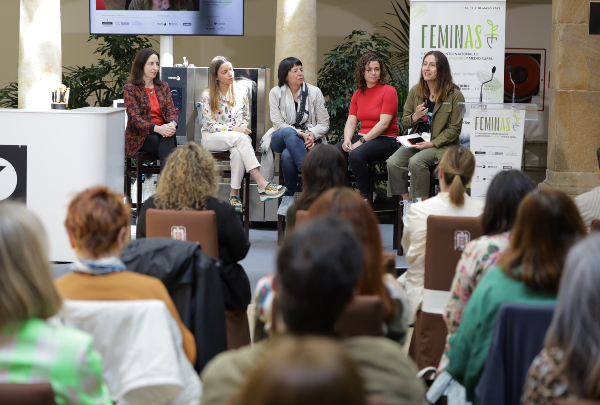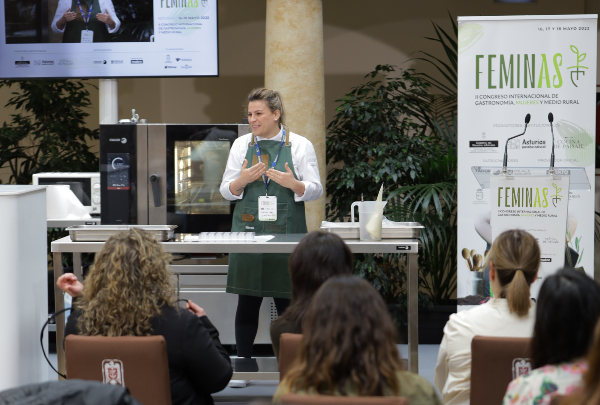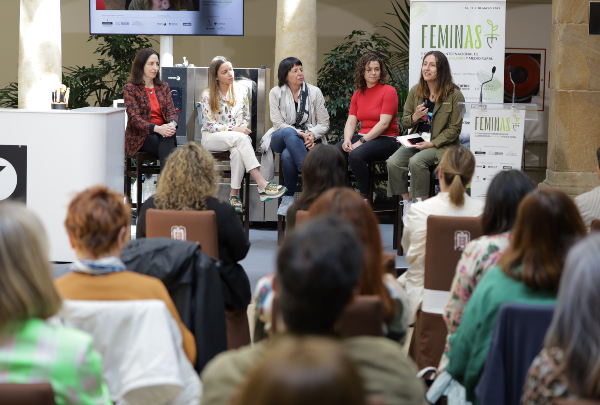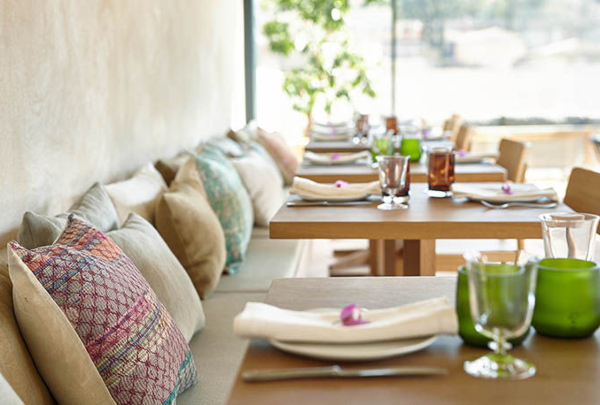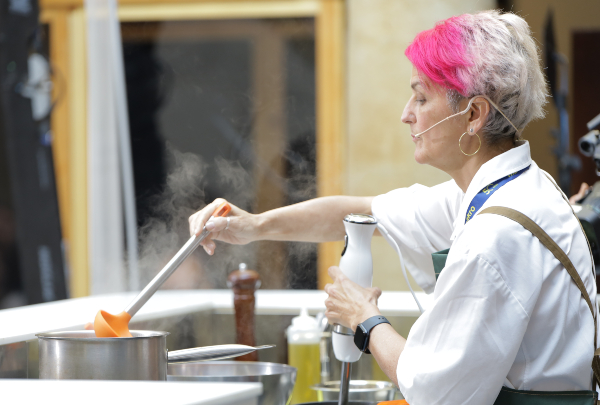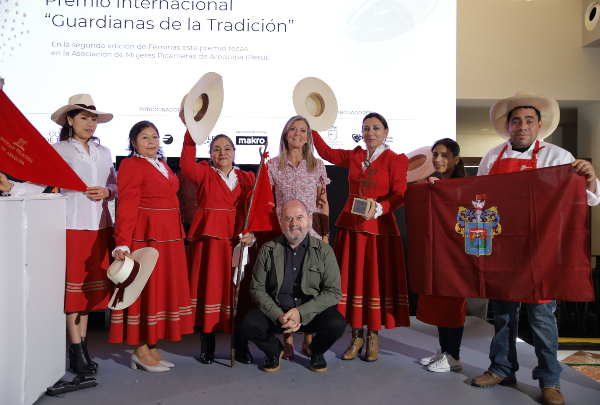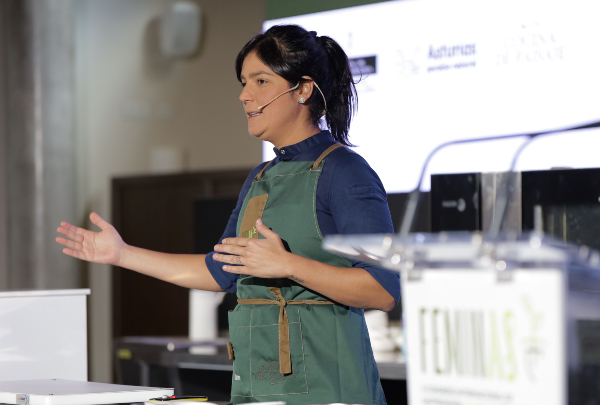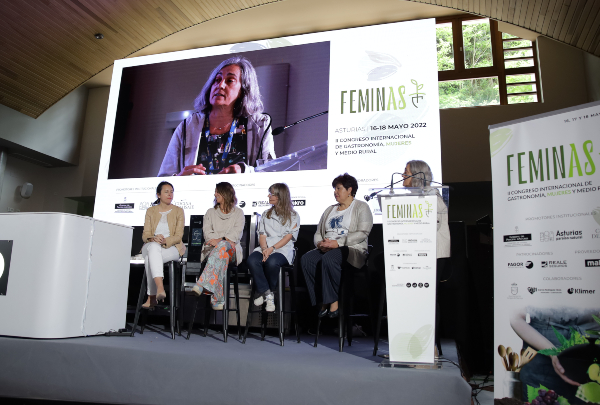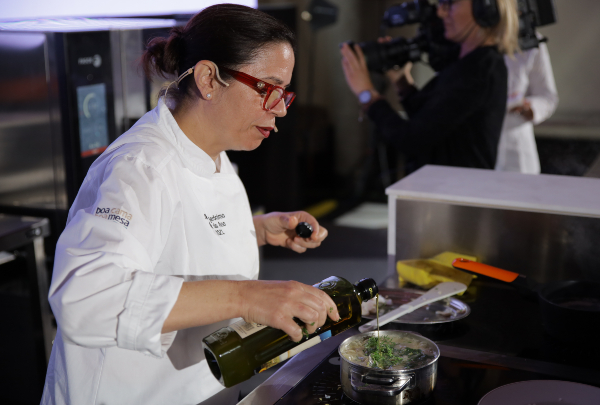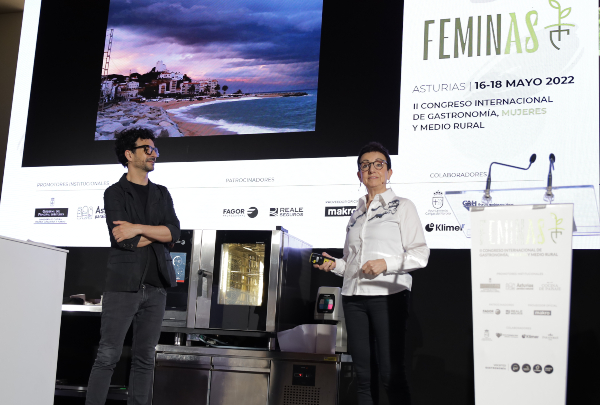News
There can be no life without the primary sector
 600.jpg)
Five women working in the rural environment (Amelia Díaz, Carolina Entrecanales, Rocío García, Paloma López and Ángela Santos), discuss the difficulties of the primary sector on the second day of the FéminAs congress.
The first problem is bureaucracy based on legislation which is far removed from rural realities. “We often find it difficult to adapt to new laws. Especially with regard to the ‘ecological’ label. There should be legislation for people who earn a living from the countryside. There's a breach between country folk and legislators", claimed Rocío García. And Amelia Díaz added: “there's a lot of ignorance concerning the rural environment. Some laws are difficult to adhere to, and others are simply contradictory”. “Legislation should be left to the people", confirmed Paloma López. "We lack a rural vision when laws are made in urban environments", added Ángela Santos.
Another sensitive issue is raw materials and their prices. The case of milk is scandalous, and neither demonstrations nor continuous complaints have had any effect. “We sell milk at 0.41 a litre, and the feed alone costs 0.47. And that doesn't even include the cost of infrastructures. There's no logic for someone else setting the price for something you produce", said Carolina Entrecanales. “That's because they attach no value to our work. They put up our production costs, but we have to go on selling at the same price. People have absolutely no idea of our world, and what it's worth", added Amelia. “And these are the prices of years ago. They haven't raised them in years”, said Ángela. “It's worse now because I remember that calves are cheaper now than they were years ago, but fodder is much more expensive", claimed Paloma. “If things go on like this, nobody will want to work in the rural environment. It's not worth it. There should be a fair price not just to cover costs, but to make operations profitable too", said Ángela.
This led to the torch-passing issue. The people working in livestock nowadays are older people, there are hardly any young people in the sector. “We need renovation and modernisation, and we need to focus on the rural environment so that young people can see it as an option", added Amelia. “There should be more training and education in schools about this. It's as if city life represents success, and the country life represents failure. in my case, my family told us to study and train, and they taught us that rural life was an option. But my girlfriends were told to study so that they could leave the village, and they portrayed it as a profession with a lot of sacrifice, something to run away from. Now they've all gone. My siblings and I stayed, and we see rural life as something valuable", explained Ángela. “It's women that shape the population. My advice is ‘study, and then come back’”, said Rocío. “People have to focus on what they like doing, and the rural sector is just another option", added Paloma. “It must be appreciated”, said Ángela. Paloma rounded off the discussion with the comment that it was a political issue because demand for labour in the cities had stripped the country life of its prestige. They were all unanimous in their conclusions: there can be no life without the primary sector, and so the sector must be passed down to the next generation.
Another issue debated was the role of women in the rural environment. Although men are still the predominant sex, women are increasingly moving into positions of power. “It's changing, but slowly”, said Carolina.
The group also discussed renewable energies. The need for hectares of land to erect solar panels or wind turbines has heightened land speculation. The situation is not easy for farmers or breeders, and quite a few of them have received substantial offers to sell up. Many of them are tired of a struggle going nowhere, and in the end they give in. But the same problem arises - if there is no land to grow crops, there cannot be any food. “We're not against this, but there has to be a balance. We have to build a sustainable model that includes all of us", said Ángela. A statement that could serve as a reply to all the issues discussed: a world that includes all of us.

